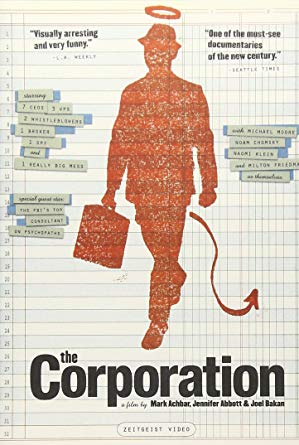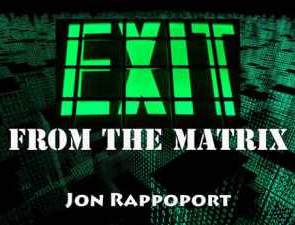Some camera tricks but hits target well enough ____ 7/10
Noam Chomsky ….Himself
Peter Drucker ….Himself
Milton Friedman …. Himself
Kathie Lee Gifford …. Herself (archive)
Michael Moore ….Himself
Franklin Delano Roosevelt Himself (archive)
Steve Wilson ….Himself
Others….. Almost all themselves
In a continuing quest to determine whether the corporate person is conducive to the life of real breathing human persons, I picked up this 2004 movie from the Netflix queue. It has the look and feel of a Michael Moore movie, and accordingly is a lesser effort for some cheap camera tricks.
Nonetheless, I come away with an appreciation of new information that, along with what our informal tribunal of citizens has already learned, is certainly enough for an indictment of the corporation in extremis.
Basically the camera trick is as follows: In the course of a narrative the viewer is shown images of something utterly devastating, so the viewer wrongly believes the images connect to the narration.
My favorite is a guy complaining about sinus problems at a business conference near a polluting company. Then we see this river full of suds—heck, it looks like a toxic Tide commercial—then pictures of a big ol’ fish being poisoned and falling to the river floor.
For all we know the images could be from the former Soviet Union. It’s unfortunate the producers undercut their case by faulty logic, or at the very least undocumented footage. Still, as scrupulous attenders we have to consider the totality of their message.
For most of the analytical description, the movie is on solid ground. It goes through the history of corporations and successfully makes the case that they have acquired unintended privileges (which have become fundamentally dangerous to human life).
As we observe from a book review of Unequal Protection, the Founders never intended corporations to have any but temporary powers granted by the state for specific purposes, such as building bridges. Now they’ve wrongly become “persons” and have set themselves above any law or constitution—buying off public officialdom en masse. Continue reading


